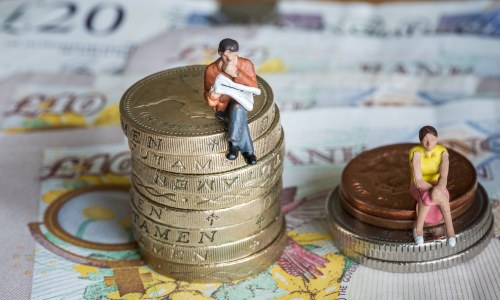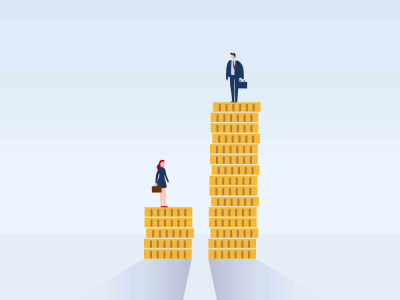
The gender pay gap for full time workers has fallen to its lowest level since records began, according to new statistics.
The difference between a man and woman’s full time median hourly pay fell from 9.6 per cent in 2015 to 9.4 per cent in 2016. This is the lowest level in 20 years, since records began in 1997.
The statistics, released by the Office of National Statistics (ONS), also revealed that weekly earnings increased by 2.2 per cent for full-time workers and 6.6 per cent for part-time workers.
London and the South East have consistently topped the list of the highest-earning regions since 1997. Other parts of the country have seen more change, with Scotland moving from sixth place in 1997 to third place in 2016 and the South West up from tenth to sixth.
The highest earnings for full time workers were for those working in the City of London, receiving on average £958 a week.
The ONS attributes the fall to the introduction of the national living wage, with those at the bottom of the pay scale now receiving £7.20 an hour.
ONS statistician, James Scruton said, “The reason for growth being fastest at the bottom end of the pay scale is likely to be the result of the introduction of the National Living Wage…as we saw a definite boost in pay for those previously paid just below the new rate.
“We saw a similar pattern back in 1999 when the National Minimum Wage came into force.”
Frances O’Grady, TUC general secretary, said, “The full-time gender pay gap is closing at a snail’s pace. At this rate, it will take decades for women to get paid the same as men.”
“We need a labour market works better for women.”
“This means helping mums get back into well-paid jobs after they have kids, and encouraging dads to take on more caring responsibilities.”
“The Government should also scrap tribunal fees, which stop women getting justice from bad employers who have discriminated against them.”
Margot James, the Business Minister, added, “The Government is determined to build an economy that works for all and it’s encouraging that earnings have grown over the last year, with the national living wage driving up the wages of the lowest paid.”
“I am particularly pleased the gender pay gap is closing but there is still more to be done to make sure women are treated equally.”
The news comes as it was announced that workplace gender equality will not be achieved until 2186.
According to the World Economic Forum Global Gender Gap 2016 report, global economic parity between the sexes could take 170 years after a dramatic slowdown in progress.
The new research also found that Britain had also dropped to number 20 in the top twenty most gender equal countries. Iceland, Finland and Norway all made the top three, while Rwanda overtook Ireland to fifth position. The Phillipines, Slovenia, New Zealand and Nicaragua make up the final top four nations.








